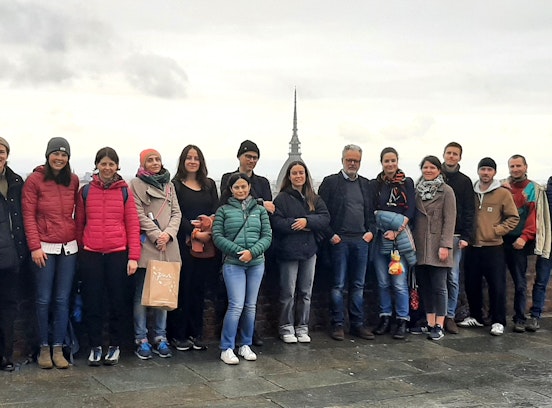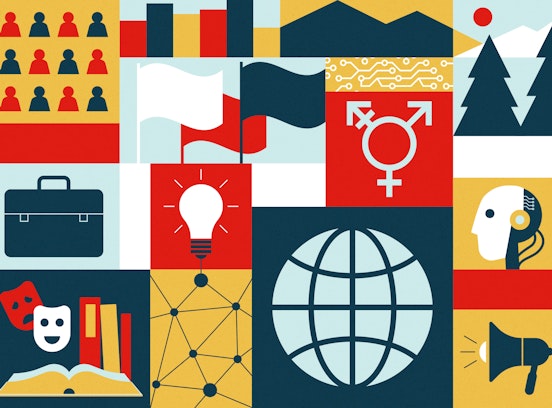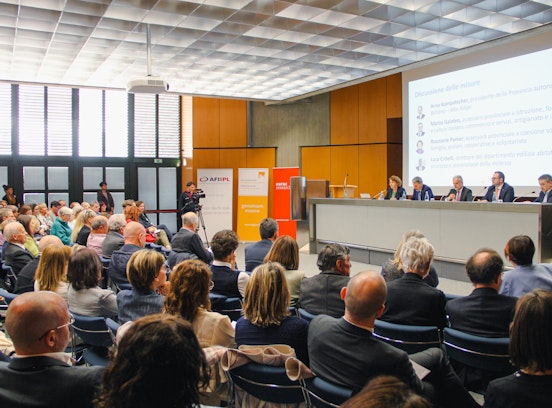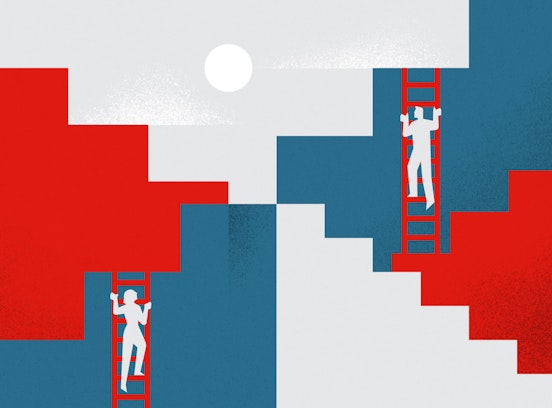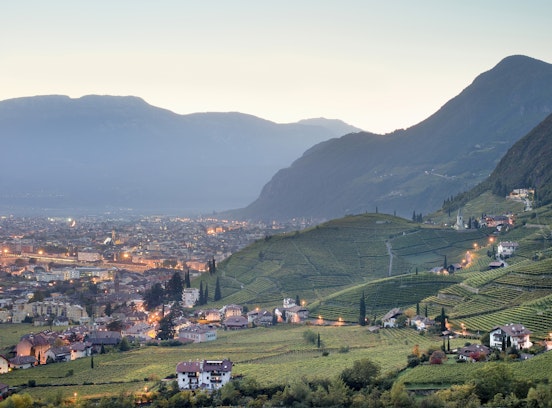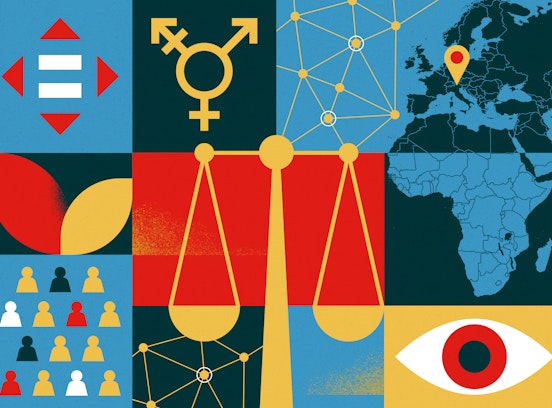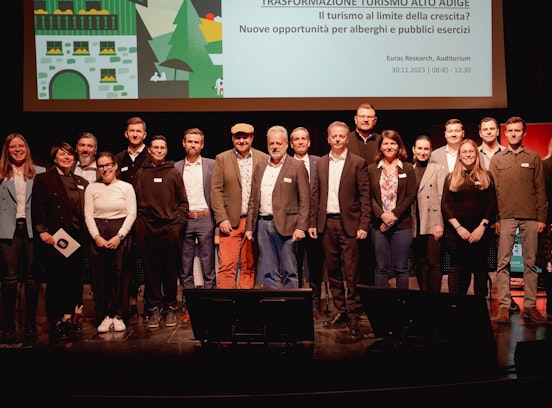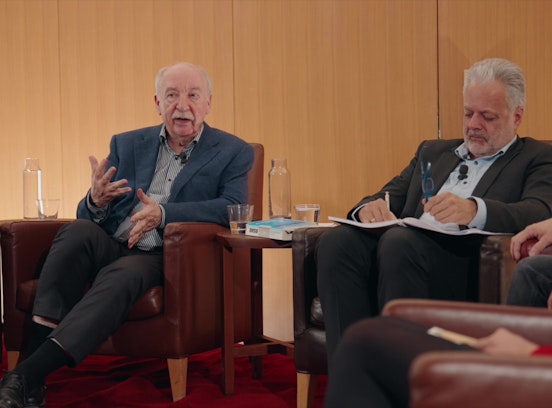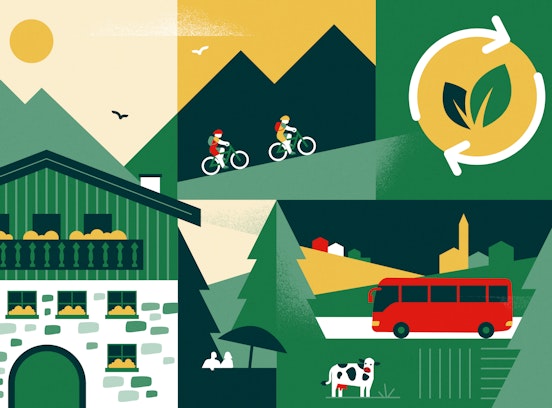Center for Advanced Studies - News & Events - Fellows' Seminar Series 2023
Fellows' Seminar Series 2023
A online lecture series with the UNESCO Chair Fellows and Stiftung Südtiroler Sparkasse Global Fellows at the Center for Advanced Studies
- English
- Date: 14.06-05.07.2023, 13.00 - 14.00
- Place: Zoom
- Typology: Lecture Series
Each year, the Eurac Research Center for Advanced Studies proudly welcomes research fellows under two different fellowship programmes: the Stiftung Südtiroler Sparkasse Global Fellowship and the newly introduced UNESCO Chair Fellowship.
The researchers come from very different disciplines and not only contribute their expertise to the ongoing research projects - the aim is also to make this multifaceted research accessible to the general public in South Tyrol.
Academia in the Wild. The “One Health” Approach as a Resource for Arts Studies
Sanja Bojanić
14.06.2023 | 13.00 CEST
Abstract
Why are arts intrinsic to mental health, and why may they become the critical element in the "One Health" approach? Design Thinking, Speculative or Interaction Design are all purposeful concepts coined to provide mere efficiency of existence, shape our needs and behaviours. But are creative and open-ended processes secreting more joy, i.e., dopamine? Mallarmé reminds us: A Throw of the Dice will Never Abolish Chance, and no matter how much we try to control or structure our endeavours, chance and unpredictability persist.
"One Health" approach recognizes the interconnectedness of human, animal, and environmental well-being. This lecture invites us to consider it as a possible tool helping us regain playfulness and dare risks of unknowing in times of crisis.
The Rights of Nature between Theory and Activism
Alex Putzer
21.06.2023 | 13.00 CEST
Abstract
The rights of nature are a new way to protect rivers, mountains, and ecosystems. Instead of defining nature as a resource that can be exploited and destroyed, nature becomes a subject, with a value independent of human interests. A river, for instance, is protected for its own sake, rather than its usefulness for fishing, generating electricity, or as a waterway. As of early 2023, there were over 420 legal rights of nature initiatives in over 40 countries across all continents. In this lecture, I will share my research on the movement, present selected success stories, and show some strategies on how to implement the idea within the South Tyrolean context.
Visions of Neoliberal Europe: Fragmented Struggle and Ethical Dilemmas in Contemporary European Cinema
Temenuga Trifonova
28.06.2023 | 13.00 CEST
Abstract
Over the last few decades film scholars have turned their attention to the social, economic and psychological effects of neoliberalism, exploring subjects such as precarious labor, downward mobility, the gendering of precarity and intersectional struggles, the Covid pandemic and precarity, individual and collective agency, the commodification of feelings, the division of neoliberal society into ‘winners’ and ‘losers’, etc. The meanings and interpretations of ‘precarity’ have also proliferated: some see precarity as giving rise to a new social class, ‘the precariat’, while others argue that precarity extends beyond the expression of an economic condition to indicate an entire ‘affective environment’ and a sense of individualised insecurity; then there are those who invite us to see precarity as a political tool rather than a socioeconomic condition from which there is no escape. This lecture will explore some of the dominant ways in which precarity and precaritization figure in contemporary European cinema.
Gender Bias, Language, and Medicine: Findings from a Linguistic Analysis of German Radiology Reports
Karoline Irschara
05.07.2023 | 13.00 CEST
Abstract
Domains in which healthcare is done rely on a variety of forms of communication. However, language is crucially involved in the unconscious perpetuation of biases, which in turn are pervasive in medicine, as evidenced by emerging knowledge constitutions in the field of gender medicine. For example, gender bias is pervasive in terms of care, access to cutting-edge medicine, and even medication. Discourse linguistic research attempts to trace connections between social factors and language use. It thus raises questions such as: Are there linguistic patterns that indicate such inequalities? Are texts about patients written differently depending on who is being treated? Such questions will be addressed in the lecture, in which some results of an interdisciplinary research project (MedCorpInn) will be presented. To answer the above questions, 5 million radiology reports of the University Hospital Innsbruck were processed as a linguistic corpus and analyzed with discourse, corpus, and gender linguistic methods.
Speakers
Sanja Bojanić
Prof. Sanja Bojanić, Ph.D. is a researcher immersed in philosophy of culture with an overarching commitment to comprehend contemporary forms of gender, racial and class practices, which underpin social and affective inequalities specifically increased in the current societal and political contexts. She expanded her interests as a graduate student at the University of Paris 8 in Hypermedia Studies and obtained her Ph.D. at Centre d'Etudes féminines et d'etude de genre. Her research is based on experimental artistic practices, queer studies, and particularities of Affect Theory. She published over forty peer-reviewed papers on topics related to her field of expertise.
Alex Putzer
Alex Putzer is writing his dissertation on the Rights of Nature in Cities at Sant’Anna School of Advanced Studies in Italy, with affiliations at MIT, UPenn, and The New School in the United States. He has taught at the University of Amsterdam, the Netherlands, and the University of Applied Arts in Vienna, Austria. As a United Nations Harmony with Nature Expert and member of the Global Alliance for the Rights of Nature Academic Hub, Alex employs multiple strategies to develop his field. As UNESCO Fellow in Interdisciplinary Anticipation and Global-Local Transformation, he explores how novel rights regimes influence urban policymaking.
Temenuga Trifonova
Temenuga Trifonova is Associate Professor of Creative Arts and Humanities at University College London. She is the author of several publications (i.e. The Figure of the Migrant in Contemporary European Cinema, 2020, Warped Minds: Cinema and Psychopathology, 2014), and the edited volumes (i.e. Screening the Art World, 2022, Contemporary Visual Culture and the Sublime, 2017). She has been the recipient of various fellowships, including at CY Cergy Paris Université, Waseda Institute for Advanced Studies (Tokyo), NYU Center for European and Mediterranean Studies, the American Academy in Rome, the Dora Maar House, and the Institute of Advanced Studies at the University of Bologna.
Karoline Irschara
Karoline Irschara is a Ph.D. candidate at the department of Linguistics at the University of Innsbruck with research interests in Corpus and Discourse Studies and Feminist Linguistics. She was involved in several research projects focusing on the connection between language and gender and is particularly interested in how this link affects medical discourse. In her doctoral project (submitted in May 2023), she worked on an extensive corpus of radiology reports by taking a Critical Medical Humanities perspective. She is involved in a FWF funded project in the field of Digital Humanities at the University of Innsbruck, which is concerned with the semantic annotation of a historical corpus.
Video recordings
About the Stiftung Südtiroler Sparkasse Global Fellowship
Each year, two Stiftung Südtiroler Sparkasse Global Fellowships are awarded. The Fellows are offered the opportunity to work closely with the interdisciplinary team at the Center for Advanced Studies on topics of both global and glocal relevance, linking personal experiences and research and chosen geopolitical areas with the Center’s expertise. Our Stiftung Südtiroler Sparkasse Global Fellows 2023 are Temenuga Trifonova and Karoline Irschara.
The Global Fellowships are funded by the
Stiftung Südtiroler Sparkasse / Fondazione Cassa di Risparmio di Bolzano.
About the UNESCO Chair Fellowship
Every year, the UNESCO Chair in Interdisciplinary Anticipation and Global-Local Transformation at the Center for Advanced Studies of Eurac Research awards two UNESCO Fellowships. The focus of the Fellowship is dedicated to future social, political and economic challenges, and how to tackle these challenges using UNESCO Futures Literacy and other UNESCO approaches and tools. Our UNESCO Chair Fellows 2023 are Sanja Bojanic and Alex Putzer.
Organisation
Eurac Research
Center for Advanced Studies
Drususallee 1 / Viale Druso 1
39100 Bozen / Bolzano
T +39 0471 055 801
advanced.studies@eurac.edu
